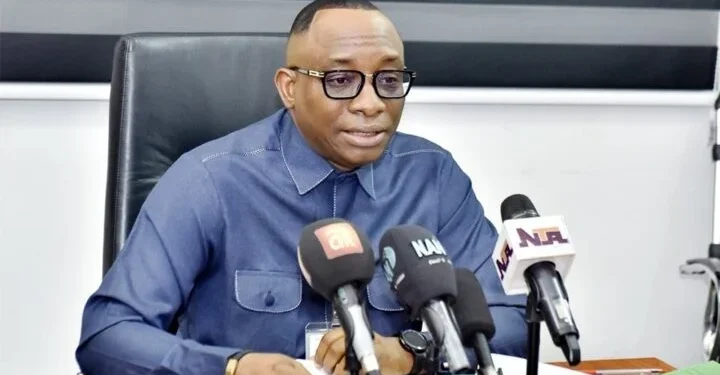The federal government saved over N173 billion in the first half of 2025 through enhanced transparency and price intelligence enabled by the Nigeria Open Contracting Portal (NOCOPO), the Bureau of Public Procurement (BPP) has revealed.
Director-general of the BPP, Dr. Adebowale Adedokun, disclosed this in Abuja during the signing of a Memorandum of Understanding (MoU) between the Bureau and the National Agency for Science and Engineering Infrastructure (NASENI).
According to Adedokun, NOCOPO’s enhanced procurement processes resulted in savings equivalent to $155 million and €1.7 million between January and June 2025, funds that he said are being redirected toward critical sectors such as education, healthcare, and SME support.
“Between January and June 2025 alone, NOCOPO’s enhanced price intelligence helped Nigeria save over N173 billion, equivalent to $155 million and €1.7 million,” Adedokun stated.
“These are not just savings on paper. They are savings that free up resources for more schools, hospitals, and support for small and medium-sized enterprises.”
He explained that the MoU signed with NASENI would integrate the agency’s innovations directly into NOCOPO, ensuring that locally developed products—such as tractors, tablets, drones, and solar systems—are prioritised by Ministries, Departments and Agencies (MDAs) in their procurement processes.
The move, he said, aligns with the enforcement of the Nigeria First Policy, which is aimed at boosting local production and reducing dependence on imports.
“NASENI’s products are already certified by the Standards Organisation of Nigeria (SON) and NAFDAC, and must be prioritised in line with the Nigeria First Policy,” Adedokun added.
He also disclosed that a joint Technical Working Committee would be established to harmonise NASENI’s production timelines with public procurement cycles and ensure proper tracking of implementation.
Speaking at the event, executive vice-chairman/CEO of NASENI, Mr. Khalil Halilu, said the MoU would help drive Nigeria’s industrialisation agenda, attract private investment, and increase visibility for companies partnering with the agency.
“In the past 18 months, over 900 companies have expressed interest in working with NASENI, and more than 50 market-ready products have emerged from these collaborations,” Halilu said.
He noted that NASENI is currently developing major infrastructure, including a renewable energy park in Keffi, and new facilities in Abuja’s Industrial Park and Technology Village to enhance domestic manufacturing capacity.
The Nigeria First Policy, introduced by President Bola Tinubu in May 2025, mandates that all MDAs prioritise Nigerian-made goods and services in federal contracts. Foreign alternatives can only be procured when no certified local substitute exists, and only with a written waiver from the BPP.
To strengthen enforcement, the President directed the BPP to enforce procurement guidelines favouring Nigerian products and services, develop a local content compliance framework, maintain a register of certified local manufacturers and service providers, oversee deployment and compliance of procurement officers across MDAs.
As part of this policy shift, MDAs have been instructed to revise their procurement plans to reflect local content priorities. Sanctions for non-compliance include contract cancellation and disciplinary action against responsible officers.
The MoU between BPP and NASENI is seen as a practical step toward mainstreaming local innovations into government procurement, ensuring that the benefits of public spending are retained within the local economy.





